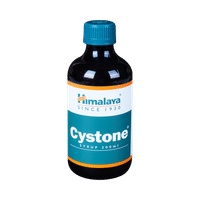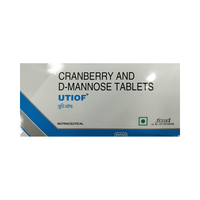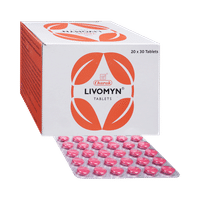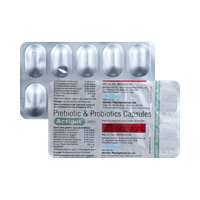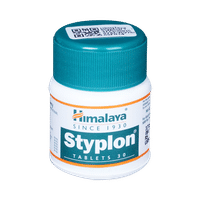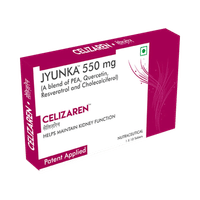Ambigron S 50 Tablet ER
Rs.533for 1 strip(s) (10 tablet er each)
food interaction for Ambigron S
alcohol interaction for Ambigron S
pregnancy interaction for Ambigron S
lactation interaction for Ambigron S
food
alcohol
pregnancy
lactation
Ambigron S 50 Tablet ER may be taken with or without food, but it is better to take it at a fixed time.
None
None
CAUTION
Caution is advised when consuming alcohol with Ambigron S 50 Tablet ER. Please consult your doctor.
CAUTION
Information regarding the use of Ambigron S 50 Tablet ER during pregnancy is not available. Please consult your doctor.
CONSULT YOUR DOCTOR
Information regarding the use of Ambigron S 50 Tablet ER during breastfeeding is not available. Please consult your doctor.
CONSULT YOUR DOCTOR
SALT INFORMATION FOR Ambigron S
Mirabegron(50mg)
Uses
Mirabegron is used in the treatment of Overactive bladder (OAB) symptoms. OAB is a collection of urinary symptoms, including frequent urination, urgent need to urinate, and inability to control urination.
How it works
Mirabegron is a beta 3-receptor agonist. It works by activating the receptor in the bladder, causing the bladder muscles to relax. It prevents frequent, urgent or uncontrolled urination.
Common side effects
Diarrhea, Headache, High blood pressure, Nasopharyngitis (inflammation of the throat and nasal passages), Urinary tract infection, Upper respiratory tract infection, Joint pain, Abdominal pain, Fatigue, Tachycardia, Palpitations, Glaucoma, Infection, Pain in urinary bladder, Kidney stone
Solifenacin(5mg)
Uses
Solifenacin is used in the treatment of Overactive bladder (OAB) symptoms. OAB is a collection of urinary symptoms, including frequent urination, urgent need to urinate, and inability to control urination.
How it works
Solifenacin is an antimuscarinic. It works by relaxing muscles of the urinary bladder to prevent frequent, urgent or uncontrolled urination.
Common side effects
Dryness in mouth, Constipation, Blurred vision, Fatigue, Vomiting, Dry eye, Urinary retention, Urinary tract infection, Influenza, Dizziness, Pharyngitis, Cough, Lower limb edema, Depression
SUBSTITUTES FOR Ambigron S
15 Substitutes
15 Substitutes
Sorted By
 Rs. 500save 9% more per Tablet ER
Rs. 500save 9% more per Tablet ER Rs. 250save 55% more per Tablet ER
Rs. 250save 55% more per Tablet ER Rs. 577.30pay 4% more per Tablet ER
Rs. 577.30pay 4% more per Tablet ER Rs. 400save 28% more per Tablet ER
Rs. 400save 28% more per Tablet ER Rs. 599.50pay 8% more per Tablet ER
Rs. 599.50pay 8% more per Tablet ER
Expert advice FOR Ambigron S
- Mirabegron helps you to have better control over your urination. It relaxes your bladder which increases its capacity to hold urine thereby reducing the need to pass urine.
- It causes less drowsiness and constipation than other medicines for overactive bladder.
- It may raise your blood pressure. Monitor your blood pressure regularly.
- Do not stop taking this medicine if you do not notice an improvement in your symptoms as it may take some time for your bladder to adapt and your symptoms to improve.
Frequently asked questions FOR Ambigron S
Mirabegron
Q. How long does it take for Mirabegron to show its effects?
You may see the full benefits of Mirabegron after 8 weeks of starting the treatment or longer. Depending on how well the medicine suits and affects the patient, the dose can be increased after 4-8 weeks.
Q. Can I stop taking Mirabegron if I start feeling better?
No, do not stop taking Mirabegron even if you start feeling better. This medicine does not cure overactive bladder but relieves the symptoms of urgency, frequency and incontinence (unable to control when you empty your bladder). Stopping treatment may result in a recurrence of the symptoms of overactive bladder.
Q. Does Mirabegron cause loss of sleep?
No, Mirabegron does not affect your sleep. However, if you are having any problems related to your sleep, talk to your doctor.
Solifenacin
Q. When should Solifenacin be taken?
Solifenacin should be taken exactly as prescribed by your doctor. Generally, it is recommended that the medicine should be taken once daily, preferably at the same time. It can be taken with or without food.
Q. Does Solifenacin cause dementia?
In rare cases, Solifenacin may cause confusion and hallucinations (seeing things or hearing voices that do not exist) as side effects. It may also cause delirium in very few people (disturbed state of mind characterized by restlessness, illusions, and incoherence). Though there are studies which support that Solifenacin may cause dementia, it is still to be confirmed.
Q. What is overactive bladder?
Overactive bladder is a condition where the nerve signals coming from the brain directs your bladder to empty even when it is not full. Consequently, this may affect a person’s ability to control bladder contractions. Rapid uncontrollable contractions cause symptoms of overactive bladder which are urinary frequency, urinary urgency, and urinary incontinence (leakage).















